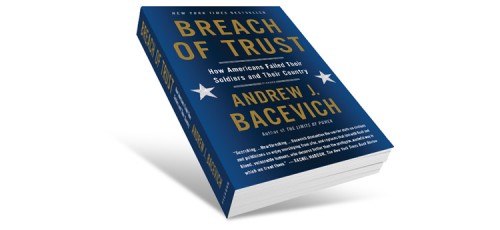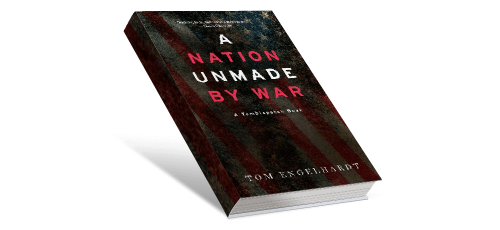
Abizaid of Arabia
Andrew Bacevich
What does President Trump’s recent nomination of retired Army General John Abizaid to become the next U.S. ambassador to Saudi Arabia signify? Next to nothing — and arguably quite a lot.
Abizaid’s proposed appointment is both a non-event and an opportunity not to be wasted. It means next to nothing in this sense: while once upon a time, American diplomats abroad wielded real clout — Benjamin Franklin and John Quincy Adams offer prominent examples — that time is long past. Should he receive Senate confirmation, Ambassador Abizaid will not actually shape U.S. policy toward Saudi Arabia. At most, he will convey policy, while keeping officials back in Washington apprised regarding conditions in the Kingdom. “Conditions” in this context will mean the opinions, attitudes, whims, and mood of one particular individual: Mohammed bin Salman. MBS, as he is known, is the Saudi crown prince and the Kingdom’s de facto absolute ruler. By no means incidentally, he is also that country’s assassin-in-chief as well as the perpetrator of atrocities in a vicious war that he launched in neighboring Yemen in 2015.

An Affair to Remember
Tom Engelhardt
Face it: it’s been an abusive time, to use a word he likes to wield. In his telling, of course, it’s he or his people who are always the abused ones and they — the “fake news media” — are the abusers. But let’s be honest. You’ve been abused, too, and so have I. All of us have and by that same fake news media. It isn’t complicated, really. Thanks to them, to those cable news talking heads who never stop yammering about him, to the reporters who clamor over his every word or twitch, he’s always there, 24/7. I know that it’s still called covering the news, but it’s a phrase that no longer faintly fits the situation. Yes, a near majority of Americans voted for him as president, but no one voted to make him a living (and living-room) icon, a never-ending presence not just in our world, […]

Thoughts on Election Day 2018
Tom Engelhardt
Who could forget that moment? The blue [red] wave — long promised but also doubted — had, however modestly [however massively], hit Washington and [the Democrats had just retaken Congress] [the Republicans had held Congress] [the Democrats had taken the House]. The media, Fox News and the usual right-wing websites aside, hailed the moment. [Fox News and the usual right-wing websites cheered the president on.] Donald Trump’s grip on America had finally been broken [reinforced]. Celebrations were widespread. Congressional investigations, possibly even impeachment, were only months and a new Congress away [were now a faint memory], and it was then, of course, that the unexpected struck. It was then that President Trump, citing national security concerns and a crisis on the U.S.-Mexico border, began the process whose end point we, of course, already know…
Okay, consider that the dystopian me speaking. We don’t, of course, really know how our story yet ends, not faintly. While I was writing this piece, I didn’t even know how Tuesday’s vote would turn out, though by the time you read it, you may. Given the experience of election 2016, it would take a brave [foolish] soul to make a prediction this time around.
I certainly learned a lesson that November. During the previous months of campaigning that election season, I never wrote a piece at TomDispatch that didn’t leave open the possibility of Donald Trump winning the presidency. In the couple of weeks before that fateful November day, however, I got hooked on the polling results and on Nate Silver’s FiveThirtyEight website and became convinced that Hillary Clinton was a shoo-in.
